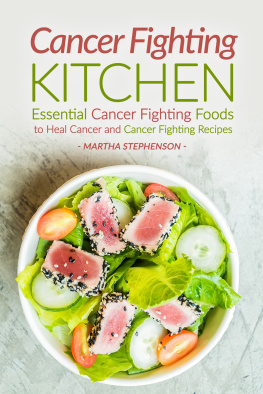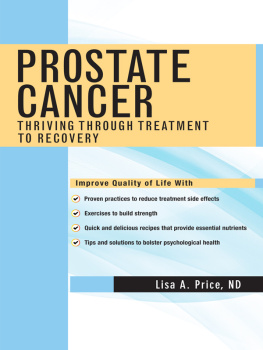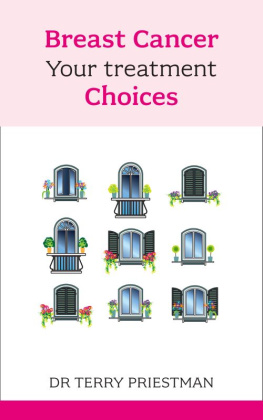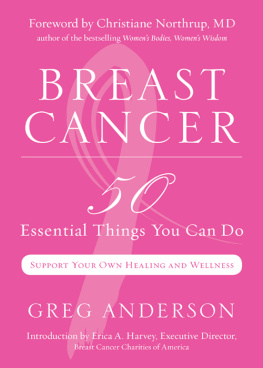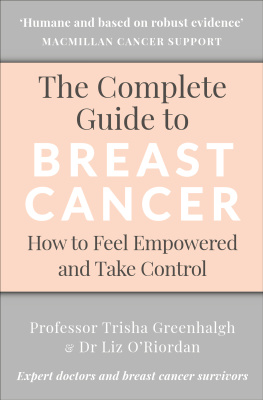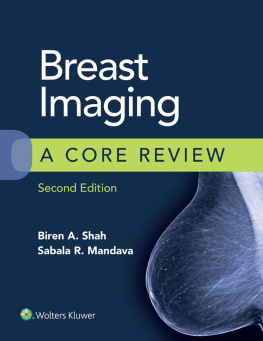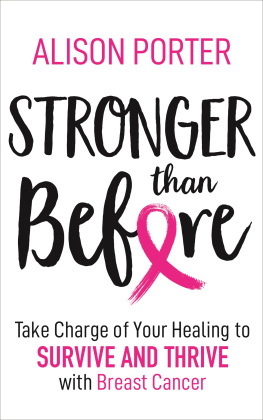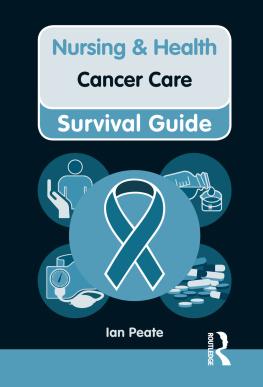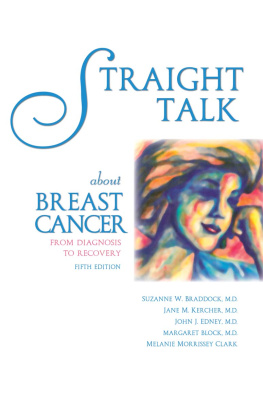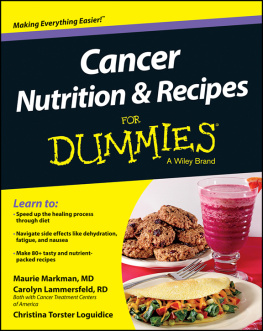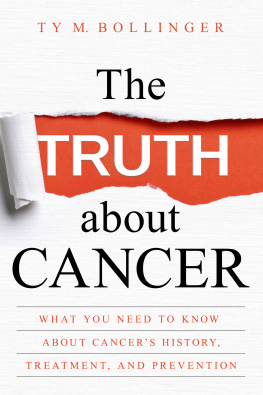
This book is intended as a reference volume only, not as a medical manual. The information given here is designed to help you make informed decisions about your health. It is not intended as a substitute for any treatment that may have been prescribed by your doctor. If you suspect that you have a medical problem, we urge you to seek competent medical help.
The information in this book is meant to supplement, not replace, proper exercise training. All forms of exercise pose some inherent risks. The editors and publisher advise readers to take full responsibility for their safety and know their limits. Before practicing the exercises in this book, be sure that your equipment is well-maintained, and do not take risks beyond your level of experience, aptitude, training, and fitness. The exercise and dietary programs in this book are not intended as a substitute for any exercise routine or dietary regimen that may have been prescribed by your doctor. As with all exercise and dietary programs, you should get your doctors approval before beginning.
Mention of specific companies, organizations, or authorities in this book does not imply endorsement by the author or publisher, nor does mention of specific companies, organizations, or authorities imply that they endorse this book, its author, or the publisher.
Internet addresses and telephone numbers given in this book were accurate at the time it went to press.
2015 by Gerald Lemole, MD, Pallav Mehta, MD, and Dwight McKee, MD
All rights reserved. No part of this publication may be reproduced or transmitted in any form or by any means, electronic or mechanical, including photocopying, recording, or any other information storage and retrieval system, without the written permission of the publisher.
Selected recipes courtesy of Conner Middelmann-Whitney, author of Zest for Life: The Mediterranean Anti-Cancer Diet and modernmediterranean.com.
Book design by Amy C. King
Library of Congress Cataloging-in-Publication Data is on file with the publisher.
ISBN 9781623365028 paperback
ISBN 9781623365035 ebook

We inspire and enable people to improve their lives and the world around them.
rodalebooks.com
To my wife, Emily Jane, whose ideas and inspiration made this book possible.
GERALD LEMOLE, MD
To all the patients and families Ive had the good fortune of meeting: Thank you for sharing your story as you have taught me invaluable lessons about courage and hope. I never forget what a privilege it is to take care of you.
To my wife, Neeta, and my three children, Isabel, Aidan, and Lily, for being my primary source of love, support, humor, aggravation, and inspiration while teaching me the importance of always staying present.
PALLAV MEHTA, MD
To all of my patients with cancer challenges over the past 40 years who have been the inspiration to me for acquiring more knowledge to assist them, while teaching me deep lessons about compassion, love, healing, living with uncertainty, and the transformational nature of the process we call cancerand for teaching me that healing is not always the same as physical recovery from illness.
To my dearest wife, Jillellen; my daughter, Micaela Collins; and my son, Luke, for supporting and loving me even when my work takes me away from them.
DWIGHT MCKEE, MD
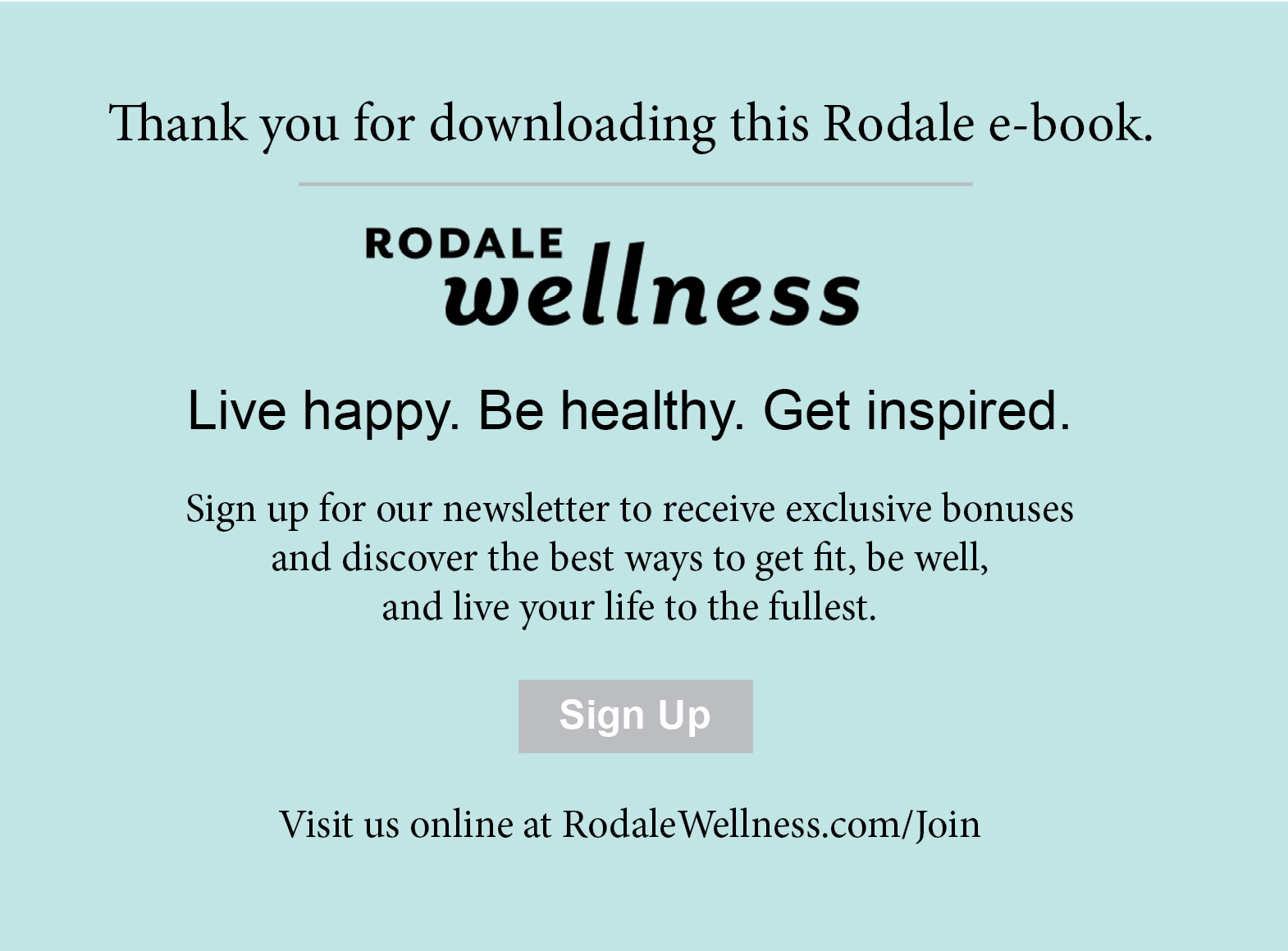
CONTENTS
FOREWORD
BY DR. MEHMET C. OZ
A few years ago, I was asked to operate on a 60-year-old man (lets call him Mike) with a leaky heart valve. His 10-inch-thick hospital chart warned that he had a complex medical history. As I read more deeply into his background, I learned that, sadly, he had metastatic stomach cancer that appeared incurable. I realized that he was either unaware of his dire diagnosis or was ignoring the reality of his situation. Operating on the heart of a terminal patient makes no sense, so I felt compelled to have an uncomfortable conversation and turn down his request for life-saving heart surgery.
When I delicately broached the topic, he looked strangely amused. Yes, I carried a diagnosis of advanced gastric cancer, he said. Thankfully, I am better now, he added. I knew this was nearly impossible, especially with an aggressive cancer that had spread so widely, so I gently challenged him using the raw data in the chart itself and pointed out the overflowing negative reports. Just as I thought my point was made, he calmly noted that all the data was true, but the comments were also irrelevant since they were more than 5 years old. Stunned, I returned to the chart. He was right!
How did Mike survive metastatic stomach cancer? Like most patients in this predicament, he had struggled with surgery, radiation, and chemotherapy. He sheepishly explained that his full recovery was not solely because of these conventional approaches. He admitted those practices were essential but that hed also sought alternative approaches, traveling the world in search of experienced practitioners who could help him walk away healthy. He consulted several guides, each of whom further crafted his game plan for full recovery. No food was overlooked. Every supplement was carefully reviewed. He was coached on groundbreaking stress management techniques. He tried new exercises and made new social connections. And he sat peacefully in front of me 5 years later 5 years after he should have passed awayhealthy enough to undergo heart surgery.

No cancer has a 100 percent mortality rate. No matter how deadly, no matter what the odds, there are always survivors. Yet patients like Mike, who defy the odds, are exceedingly rare. After undergoing treatment, many cancer patients suffer unnecessarily and some face high riskseven failure of therapybecause of missed opportunities in after care. Hence, the need for this wonderful book that offers superbly organized and researched advice for the almost 50 percent of us who will develop cancer in our lifetimes.
Drs. Lemole, Mehta, and McKee are world-class experts in helping patients navigate cancer and the effects of necessary conventional therapy (such as chemotherapy, radiation, and surgery) with subsequent recovery of full vitality. Theyll take you on an in-depth yet easy-to-digest journey through cancer protocols to understand how complementary approaches can accelerate recovery. Theyll expand on foods that heal and foods that hurt, and theyll offer delicious, easy-to-prepare recipes to incorporate nourishing foods into your life. Theyll explain and break down nutritional supplement strategies so you can feel confident talking to your doctor about whats right for you. Throughout the book, theyll offer cutting-edge insights on how after cancer care can dramatically alter patient outcomesincluding yoursfavorably.
Theyll also introduce groundbreaking concepts like epigenetics, a proven mechanism by which our genes can adjust to environmental stresses and support. Now that we recognize we can influence the blueprint of our bodies, ignoring opportunities to nudge this code in the right direction is unwise, and


